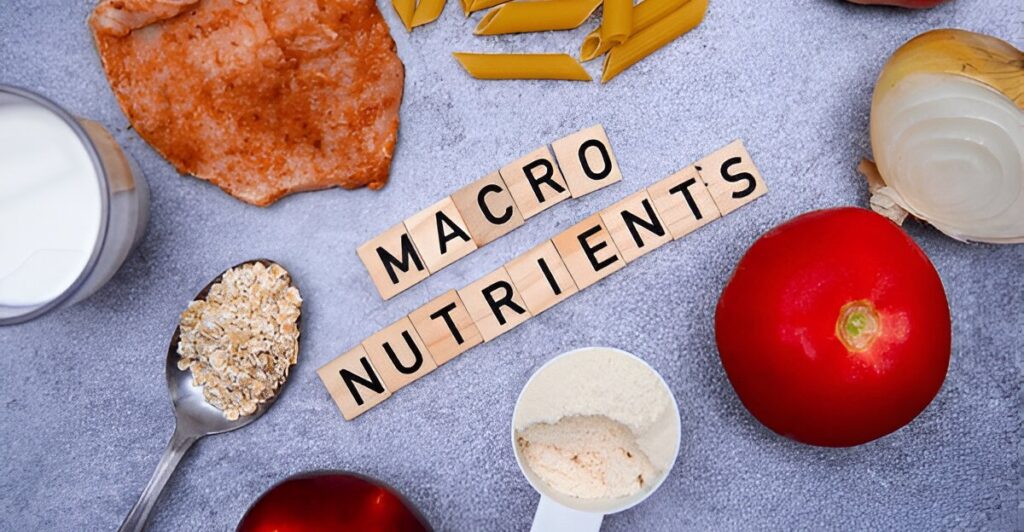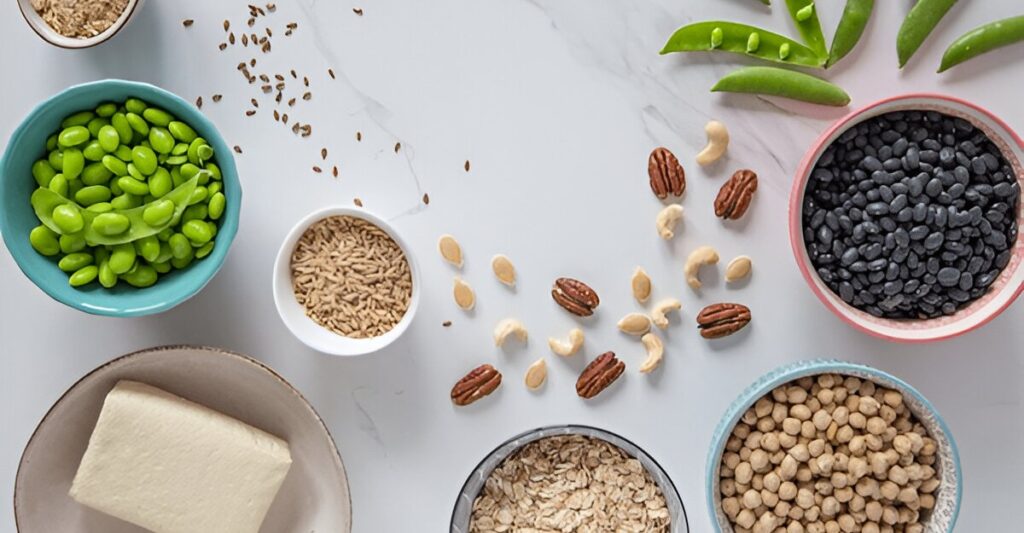What you eat doesn’t just affect your body—it profoundly impacts your mind. The link between diet and mental health is a growing area of research, revealing how nutrition influences mood, stress, and cognitive function. From reducing anxiety to boosting focus, the foods you choose can act as powerful tools for mental well-being. This article explores the science behind diet and mental health, key nutrients that support your brain, and practical ways to eat for a happier, healthier mind.
How Diet Influences Mental Health
Your brain is a high-energy organ, relying on a steady supply of nutrients to function optimally. The link between diet and mental health stems from how food affects brain chemistry, inflammation, and gut health. Poor diets high in processed foods can disrupt these systems, contributing to depression, anxiety, and cognitive decline, while nutrient-dense diets support resilience and clarity. Research from The Lancet Psychiatry and Nutritional Neuroscience highlights several mechanisms:
- Neurotransmitter Production: Nutrients like amino acids and B vitamins are essential for producing serotonin and dopamine, which regulate mood.
- Inflammation: Diets high in sugar or trans fats increase inflammation, linked to depression, while anti-inflammatory foods like omega-3s reduce it.
- Gut-Brain Axis: The gut microbiome, influenced by diet, communicates with the brain, affecting stress and emotions (Gut Microbes).
- Blood Sugar Stability: Stable blood sugar from complex carbs and fiber supports focus and prevents mood swings.
Understanding the link between diet and mental health empowers you to make choices that nurture both body and mind.
Key Nutrients for Mental Health
Certain nutrients play a starring role in supporting brain function and emotional well-being. Here’s what to prioritize:
1. Omega-3 Fatty Acids
Omega-3s (EPA and DHA) reduce inflammation and support brain cell communication. Studies in Journal of Clinical Psychiatry link higher omega-3 intake to lower depression and anxiety risk.
Sources:
- Fatty fish (salmon, mackerel)
- Flaxseeds, chia seeds
- Walnuts
2. B Vitamins
B vitamins, especially B6, B12, and folate, are crucial for neurotransmitter synthesis and energy production. Deficiencies are linked to depression and fatigue (Nutrients).
Sources:
- Leafy greens (spinach, kale)
- Eggs, poultry
- Fortified cereals, legumes
3. Antioxidants
Vitamins C, E, and polyphenols combat oxidative stress, protecting brain cells. Research in Frontiers in Aging Neuroscience suggests antioxidants may slow cognitive decline.
Sources:
- Berries, citrus fruits
- Dark chocolate (70%+ cocoa)
- Nuts, seeds
4. Probiotics and Prebiotics
A healthy gut microbiome supports the gut-brain axis, reducing stress and improving mood (Psychopharmacology). Probiotics introduce beneficial bacteria, while prebiotics feed them.
Sources:
- Probiotics: Yogurt, kefir, kimchi
- Prebiotics: Garlic, onions, bananas
5. Magnesium
Magnesium regulates stress response and supports sleep, both critical for mental health (Journal of Affective Disorders).
Sources:
- Spinach, pumpkin seeds
- Almonds, avocados
- Whole grains
Diets That Support Mental Health
The link between diet and mental health is evident in certain eating patterns shown to boost brain function:
- Mediterranean Diet: Rich in omega-3s, vegetables, and whole grains, it’s linked to lower depression rates (Molecular Psychiatry).
- DASH Diet: Designed for heart health, its nutrient density supports mood and cognition.
- Whole-Food, Plant-Based Diets: High in fiber and antioxidants, they promote gut health and reduce inflammation.
Conversely, Western diets high in processed foods, sugar, and trans fats are associated with higher risks of depression and anxiety (American Journal of Public Health).
Benefits of Eating for Mental Health
Prioritizing the link between diet and mental health offers wide-ranging benefits:
- Improved Mood: Nutrient-rich foods boost serotonin and dopamine, reducing symptoms of depression and anxiety.
- Enhanced Focus: Stable blood sugar and omega-3s improve cognitive performance and memory.
- Better Stress Resilience: Magnesium and probiotics help regulate cortisol, calming the nervous system.
- Reduced Inflammation: Anti-inflammatory diets protect against mood disorders and cognitive decline.
- Long-Term Brain Health: Antioxidants and healthy fats may lower the risk of dementia and Alzheimer’s.
Potential Challenges and Risks
While optimizing diet for mental health is powerful, challenges exist:
- Access and Cost: Nutrient-dense foods like fish or fresh produce can be expensive or hard to access.
- Time Constraints: Preparing whole foods requires planning, which can be tough with busy schedules.
- Over-Restriction: Eliminating entire food groups (e.g., carbs) may lead to deficiencies or disordered eating.
- Individual Variability: Nutrient needs vary, so what works for one person may not suit another.
Consult a dietitian to tailor your diet, especially if you have mental health conditions or take medications.
How to Eat for Better Mental Health
To leverage the link between diet and mental health, incorporate these practical, science-backed strategies:
1. Prioritize Whole, Nutrient-Dense Foods
Focus on foods that support brain health and reduce inflammation.
Key Foods:
- Fatty fish, eggs for omega-3s and B vitamins
- Berries, leafy greens for antioxidants
- Nuts, seeds for magnesium and healthy fats
- Fermented foods for gut health
Pro Tip: Aim for a colorful plate to maximize nutrient variety.
2. Limit Processed Foods and Sugars
High-sugar, ultra-processed foods increase inflammation and disrupt mood. Swap soda for water, and replace chips with nuts or fruit.
Pro Tip: Read labels to avoid hidden sugars in sauces or packaged snacks.
3. Eat Regular, Balanced Meals
Skipping meals or erratic eating can destabilize blood sugar, worsening mood. Aim for three meals and one or two snacks daily, including protein, fiber, and healthy fats.
Pro Tip: Prep meals in advance to stay consistent during busy days.
4. Stay Hydrated
Dehydration can impair focus and increase stress. Drink 8-10 cups of water daily, supplementing with herbal teas or infused water for variety.
Pro Tip: Carry a reusable water bottle to track intake.
5. Support Gut Health
Incorporate probiotic-rich foods (yogurt, kefir) and prebiotic fibers (onions, asparagus) to nurture your gut-brain axis.
Pro Tip: Start with small servings of fermented foods to avoid digestive discomfort.
6. Consider Supplements if Needed
If dietary intake is low, supplements like omega-3s, vitamin D, or magnesium can help. Consult a doctor to assess deficiencies and avoid interactions.
Pro Tip: Choose high-quality supplements with third-party testing for purity.
Sample Mental Health-Focused Meal Plan
Here’s a one-day plan to support the link between diet and mental health:
- Breakfast: Greek yogurt with blueberries, walnuts, and chia seeds.
- Snack: Apple slices with almond butter.
- Lunch: Grilled salmon with quinoa, roasted Brussels sprouts, and olive oil dressing.
- Snack: Kefir smoothie with banana and flaxseeds.
- Dinner: Chicken stir-fry with spinach, garlic, and brown rice.
Final Thoughts
The link between diet and mental health is undeniable, offering a powerful way to enhance mood, focus, and resilience through food. By prioritizing omega-3s, B vitamins, antioxidants, and gut-friendly foods, you can nourish your brain and support emotional well-being. Start small—add a serving of berries or swap a processed snack for nuts—and build from there. With consistent, mindful choices, your diet can become a cornerstone of mental health, helping you feel happier and more balanced every day.


